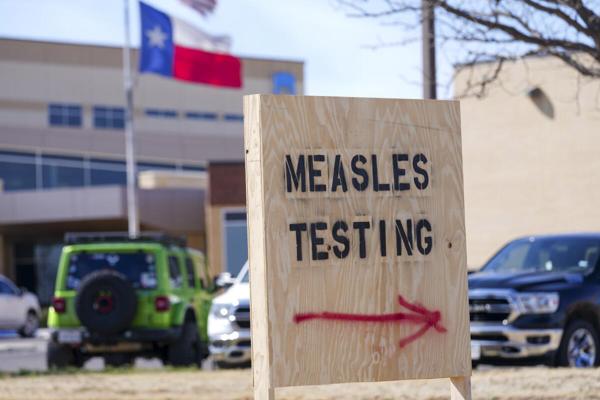Measles Outbreak in Texas: A Call for Caution
AUSTIN, Texas — This year, Texas has found itself at the center of the largest measles outbreak in over two decades, with over 700 reported cases. The outbreak has led to numerous hospitalizations and, tragically, two unvaccinated children have lost their lives. In the wake of this health crisis, state lawmakers have passed a controversial bill aimed at making it significantly easier for parents to enroll their children in schools without the required vaccinations for diseases such as measles, whooping cough, polio, and hepatitis A and B.
The Legislative Change: House Bill 1586
House Bill 1586, now awaiting the signature of Republican Governor Greg Abbott, simplifies the exemption process for parents seeking to avoid vaccinations on grounds of conscience, religious beliefs, or medical exceptions. The proposed change would allow parents to download the necessary exemption forms from a state health website, eliminating the need to wait for mailed documents.
Proponents of the bill argue that streamlining this process will help parents navigate bureaucracy and enroll their children in school more efficiently. However, critics are concerned that this will undermine public health and potentially spur new outbreaks of preventable diseases.
Health Advocates Voice Concerns
Rekha Lakshmanan, chief strategy officer for the Texas-based nonprofit Immunization Project, emphasized the potential dangers of such legislation during discussions in the state senate. She likened the ongoing outbreak to a “canary in the coal mine,” warning that making exemption processes easier could lead to increased illnesses, deaths, and healthcare costs.
A Broader Trend in Vaccine Legislation
This Texas bill is part of a larger national pattern where conservative states are increasingly questioning vaccine requirements. Following the COVID-19 pandemic, federal data showed a decline in kindergarten vaccination rates, from 95% before the pandemic to 92.7% for the 2023-24 school year. Concurrently, requests for vaccine exemptions have surged to an all-time high.
The Texas exemption rates have been increasing steadily over the past two decades, with a significant spike in recent years. In the fiscal year of 2023-2024 alone, nearly 153,000 exemption requests were filed, almost double the total from 2019.
Public Health at Risk?
Critics argue that the simplified process could lead to more unvaccinated children entering schools, thereby jeopardizing the overall health of the community. Hospital staff and healthcare professionals, like Dr. Eric Baggerman from Amistad Community Health Center, point to the recent outbreak as a clear example of the risks of low vaccination rates.
While acknowledging the importance of parental rights, Dr. Baggerman advocates for informed decision-making, urging families to consult with trusted healthcare providers rather than turning to online resources.
Despite the ongoing public health discussions, some parents like Chayan Benavidez emphasize the need for education on vaccination, irrespective of personal choices. Benavidez, who has experienced the pandemic's challenges firsthand, believes that understanding the potential aftermath of vaccinations is essential for parents.
The Ethical Balance of Freedom and Public Safety
The opposition to the exemption bill highlights a critical juncture for Texas: balancing parental rights with the collective safety of the community. Advocates for public health assert that personal freedoms should not come at the cost of public health, suggesting that easier access to vaccine exemptions could destabilize years of progress in disease prevention.
As legislative actions continue to unfold, Texas faces a crucial decision that could have lasting implications for both public health and parental autonomy. The bill's potential to shift the vaccination landscape in the state not only reflects local values but also mirrors a broader national discourse about the role of government in public health and safety.
Bias Analysis
Key Questions About This Article




